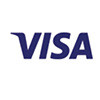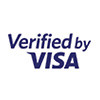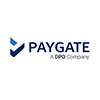Film Permit
Filmmakers are generally required to obtain a film permit from the Namibian Film Commission (NFC) before commencing any filming activities in Namibia. The film permit serves as official authorization and outlines the specific details of the production, including shooting locations, dates, crew size, and equipment to be used.
Application Process
Filmmakers must submit an application to the NFC, providing comprehensive details about the project, such as the script, synopsis, shooting schedule, production budget, and any specific requirements or special effects involved. It is advisable to apply for a film permit well in advance to allow sufficient time for processing and coordination.
Local Company Production
Working with a local production company is a requirement when obtaining a film permit. The NFC can assist in connecting filmmakers with reliable local production companies that can provide production support, location scouting, equipment rental, and other necessary services.
Location Agreements
Filmmakers must secure permission from property owners or relevant authorities to film in specific locations, including private properties, public spaces, national parks, and cultural heritage sites. The NFC can facilitate the process of obtaining location agreements and liaising with relevant stakeholders.
Environmental Considerations
Namibia places importance on the conservation of its natural environment. Filmmakers must adhere to environmental regulations and minimize any potential impact on sensitive ecosystems. This may involve obtaining additional permits or adhering to specific guidelines, particularly when filming in protected areas or near wildlife.
Please refer to the Filming in National Parks and Protected Areas article here.
Cultural Sensitivity
Namibia has a rich cultural heritage, and filmmakers are expected to respect and portray local cultures and traditions accurately and sensitively. When filming in communities or engaging with local populations, it is crucial to obtain consent and show cultural sensitivity, ensuring that the local customs and beliefs are respected.
Please refer to the Filming and Photographing of Minority Groups article here.
Health and Safety
Filmmakers are responsible for ensuring the health and safety of the cast, crew, and the public during filming. This includes complying with workplace safety regulations, having appropriate insurance coverage, and implementing necessary measures to address potential risks or hazards.
Drone Filming
If filmmakers plan to use drones for aerial shots, they must comply with the Civil Aviation Authority of Namibia's regulations. This typically involves obtaining the necessary permits and adhering to airspace restrictions and safety guidelines.
For all aviation related matters, i.e. drone usage and certification the Namibia Civil Aviation Authority (NCAA) must be contacted.






